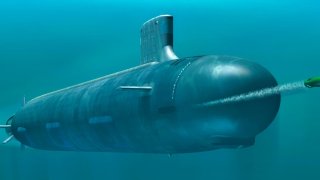Japan Could Join the AUKUS Program
The AUKUS security partnership, initially formed by Australia, the United Kingdom, and the United States, is exploring the possibility of Japan's participation in specific defense technology projects.
Summary: The AUKUS security partnership, initially formed by Australia, the United Kingdom, and the United States, is exploring the possibility of Japan's participation in specific defense technology projects. This potential collaboration marks Japan as the first country considered for involvement in AUKUS since its inception in September 2021. While Japan's participation would be project-specific and not extend to full membership, this move signifies AUKUS's broader ambition beyond its primary goal of assisting Australia in acquiring nuclear-powered submarines. The partnership also aims to advance in artificial intelligence, undersea drones, hypersonic capabilities, and electronic warfare technologies. This development aligns with Australia's interest in deepening technological ties with Japan and reflects ongoing efforts to strengthen cybersecurity measures and security clearances in Japan to protect sensitive information and technologies critical to AUKUS's objectives.
AUKUS Eyes Expansion: Japan's Potential Collaboration in Defense Tech
The trilateral AUKUS security partnership between Australia, the United Kingdom, and the United States might invite Japan to collaborate on defense technology. According to reports on Monday, Washington has initiated talks with Canberra and London to invite Tokyo into the framework, although Japan's involvement would be limited to specific projects.
Japan would become the first country invited to work within the framework since AUKUS was launched in September 2021, Nikkei Asia reported.
The Pillar 1 goal for AUKUS centers on helping Australia acquire conventionally armed nuclear-powered submarines, while the Pillar 2 goal focuses on developing advanced warfighting capabilities that include artificial intelligence, undersea drones, hypersonic capabilities, and electronic warfare technologies. There are no plans to extend full membership in the program to Japan.
This is not the first time AUKUS has sought to expand cooperation with non-member states.
New Zealand has also expressed interest in Pillar 2 efforts, and Canada has sought to collaborate with AUKUS on the development of cutting-edge defense capabilities. Both New Zealand and Canada are members of the Five Eyes intelligence alliance that also includes the United States, the United Kingdom, and Australia. There has been speculation in recent years that Japan could also join the Five Eyes.
Last month, Australian Defense Minister Richard Marles said he sought to "work more closely with Japan" on technological developments.
AUKUS – More Than a Submarine
As noted, when AUKUS launched in 2021, its Pillar 1 initiative called for the U.S. and UK to help Australia acquire a nuclear-powered submarine to replace its aging, conventionally powered Collins-class boats. Both the UK's Royal Navy and the Royal Australian Navy will employ the future SSN-AUKUS submarines.
Though the three partner nations do seem to be fully engaged with the AUKUS program, there is speculation that the project could be scuttled if former U.S. President Donald Trump returns to the White House. Trump previously threatened to abandon the deal, which has strong support from the Biden administration.
Japan Needs Better Cybersecurity
Before it can expect any formal invite, Japan might need to strengthen its cybersecurity measures to protect sensitive data and technology. It would also likely need to create a more robust security clearance system — an issue that is now being addressed with a new bill expected to clear the Japanese parliament in the current session.
The proposed legislation would allow Japan's government to classify more information as confidential, and to ask employees at companies with access to that information to undergo security clearance checks. According to a report from Reuters, under the proposed changes, workers at companies who consent to security probes will be interviewed by government officials, checked for criminal convictions and past abuse of drugs or alcohol, and given a psychological assessment.
Given the technology that AUKUS seeks to develop, that added layer of clearance requirements would likely be critical before Japan enters the program.
Author Experience and Expertise: Peter Suciu
Peter Suciu is a Michigan-based writer. He has contributed to more than four dozen magazines, newspapers, and websites with over 3,200 published pieces over a twenty-year career in journalism. He regularly writes about military hardware, firearms history, cybersecurity, politics, and international affairs. Peter is also a Contributing Writer for Forbes and Clearance Jobs. You can follow him on Twitter: @PeterSuciu. You can email the author: [email protected].


